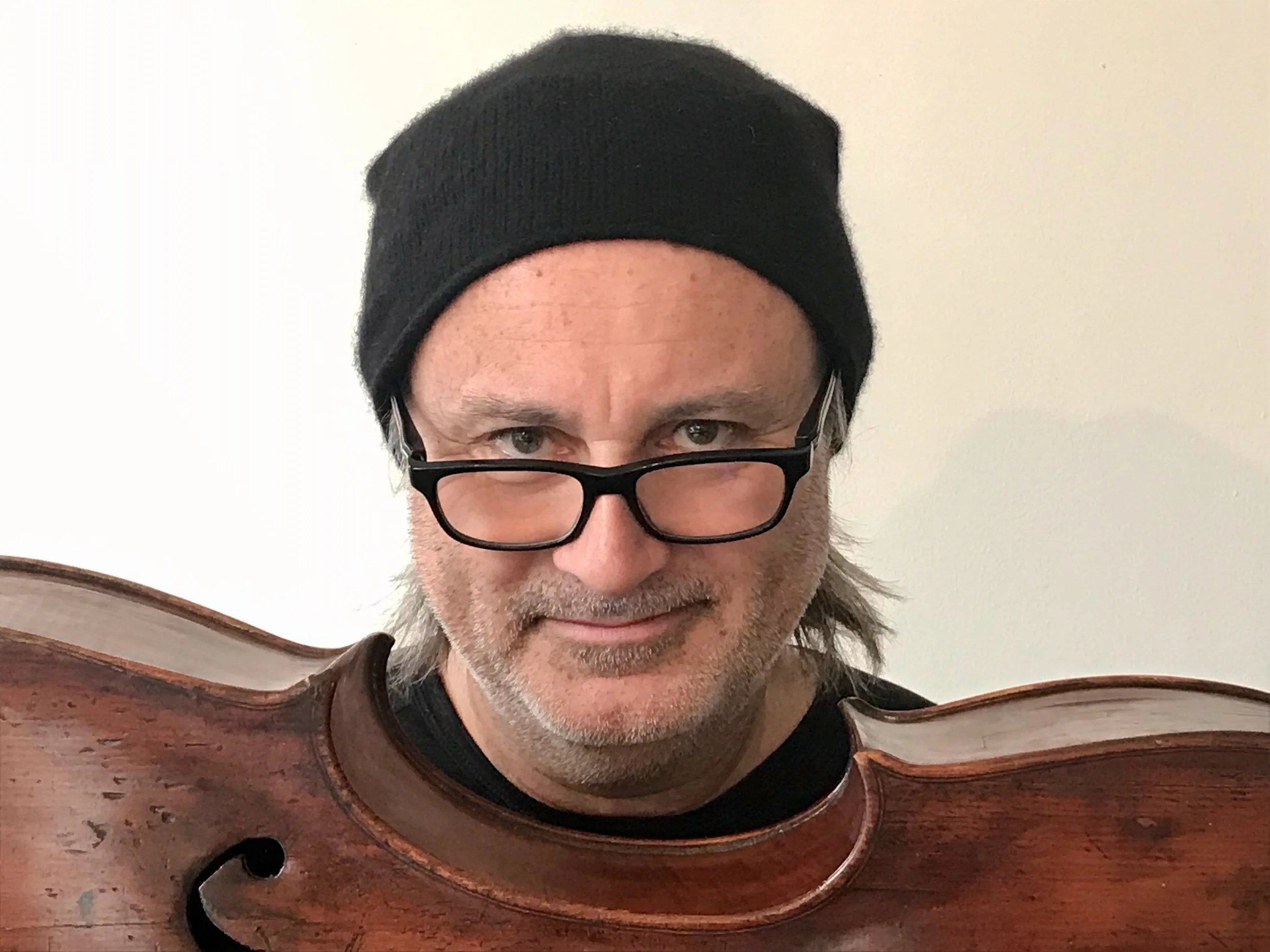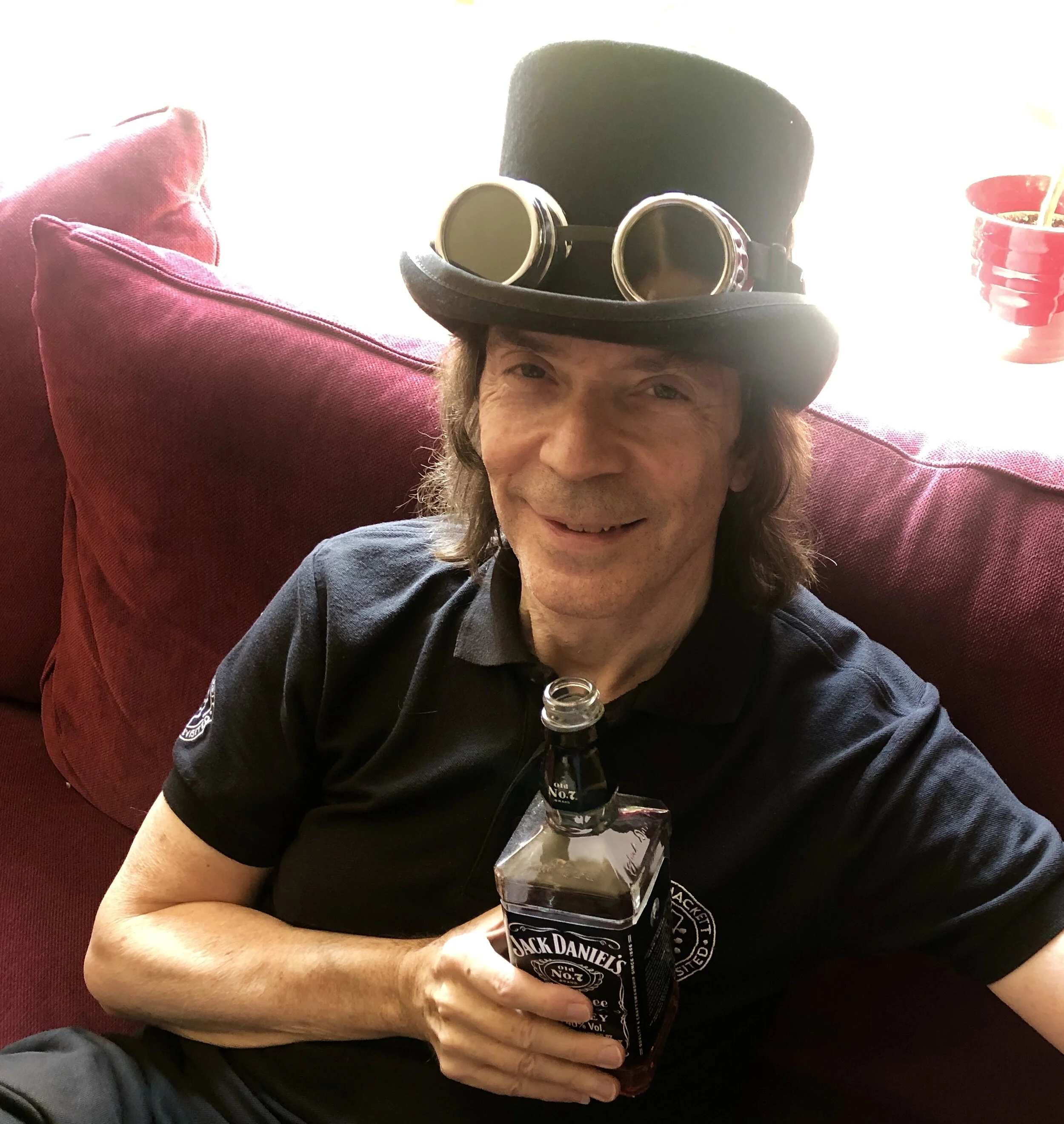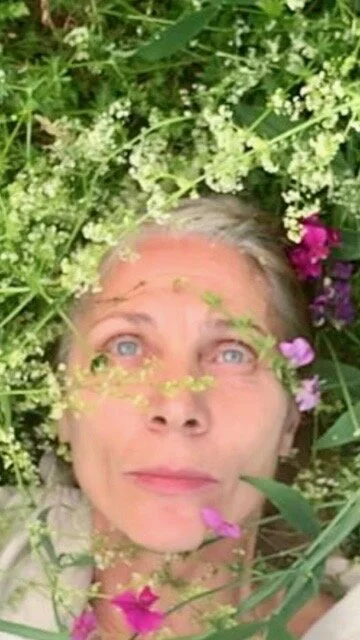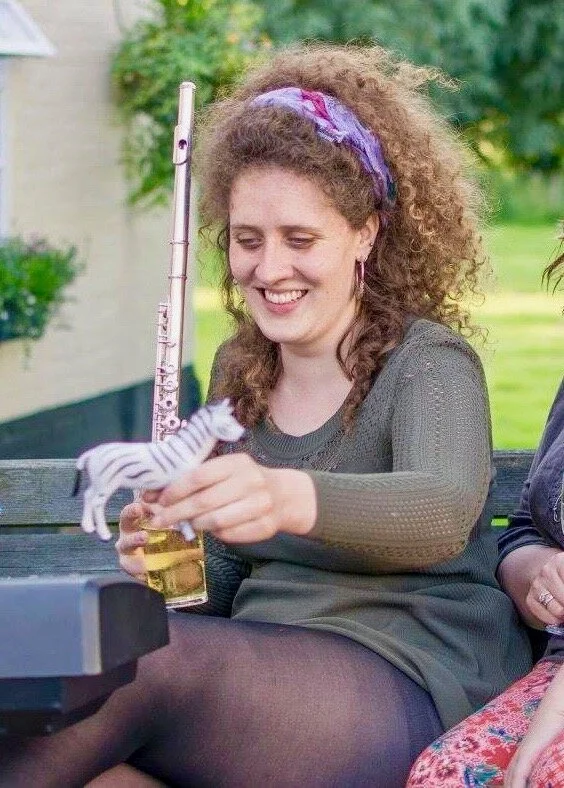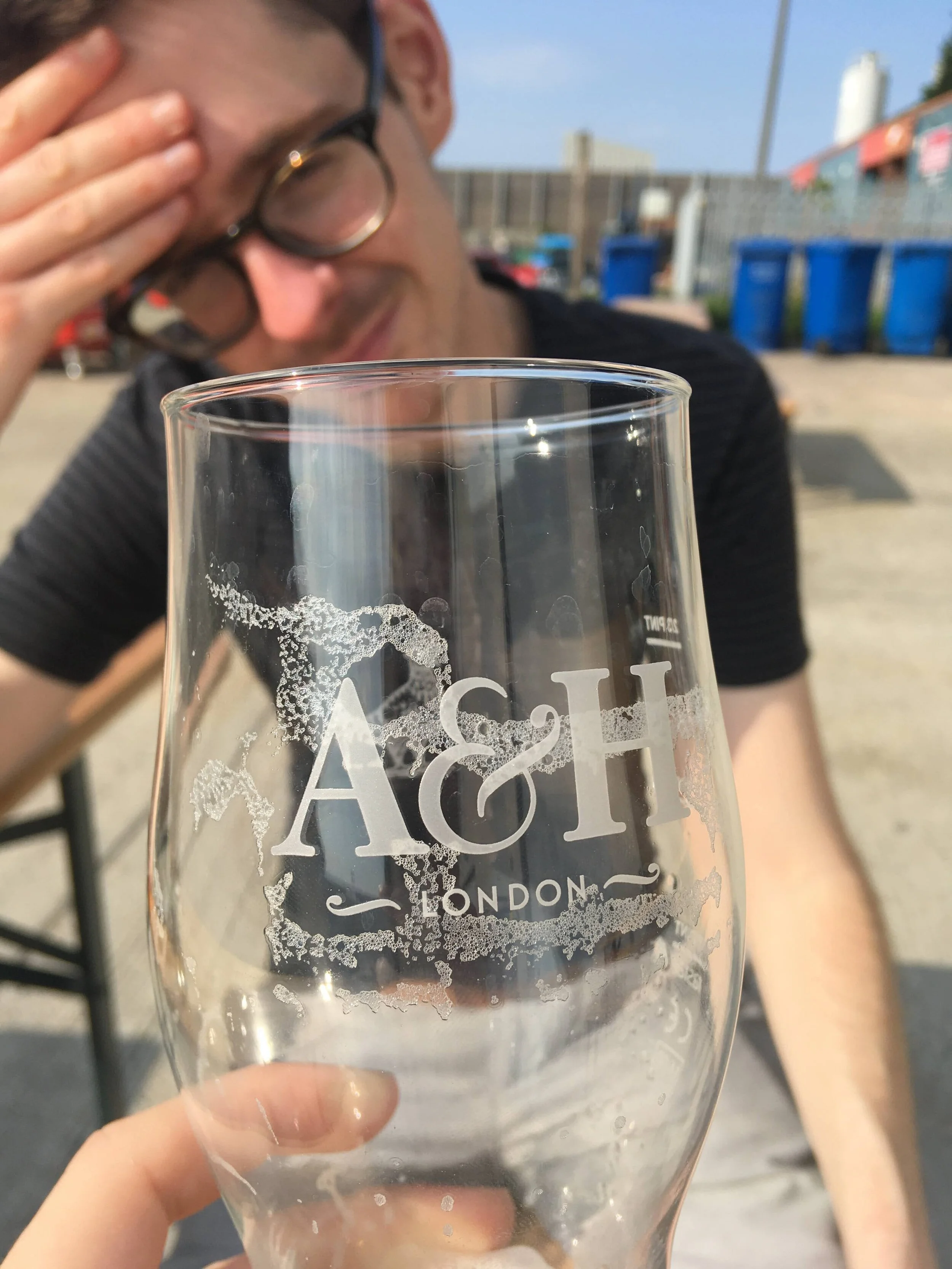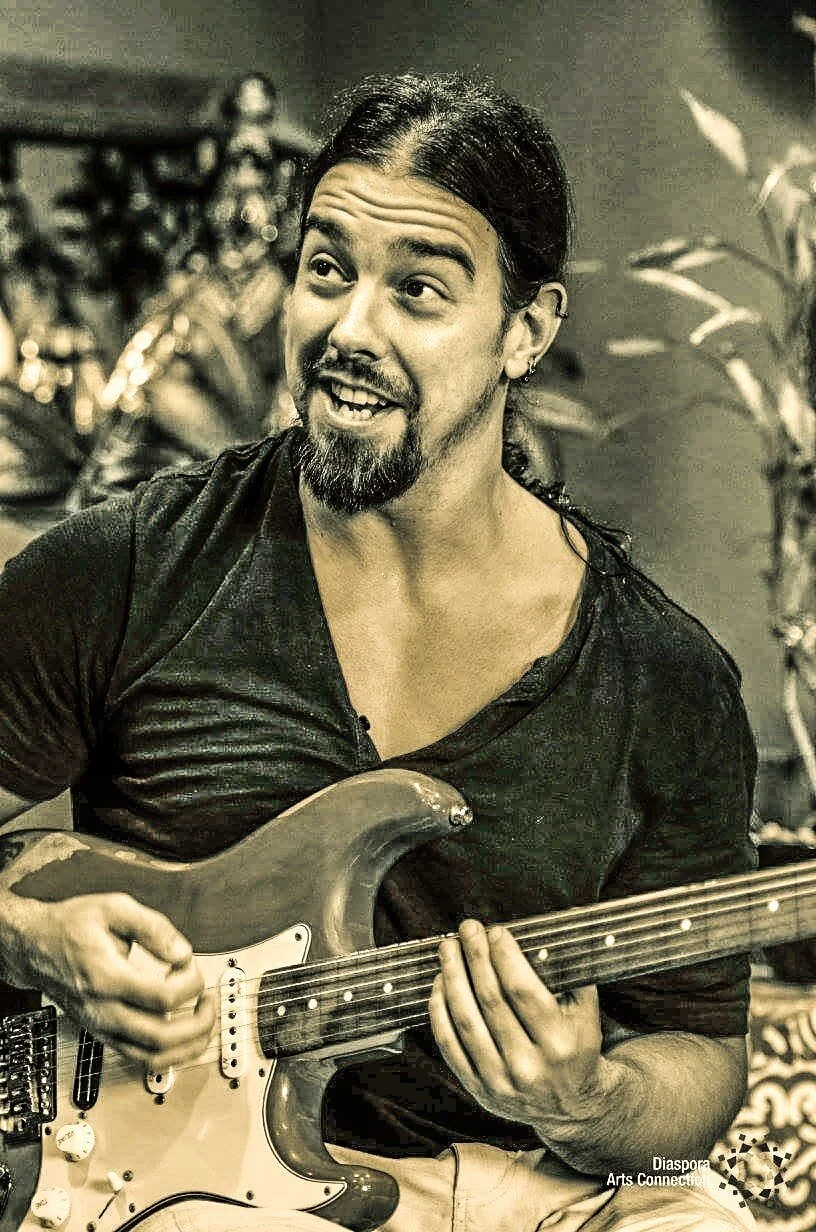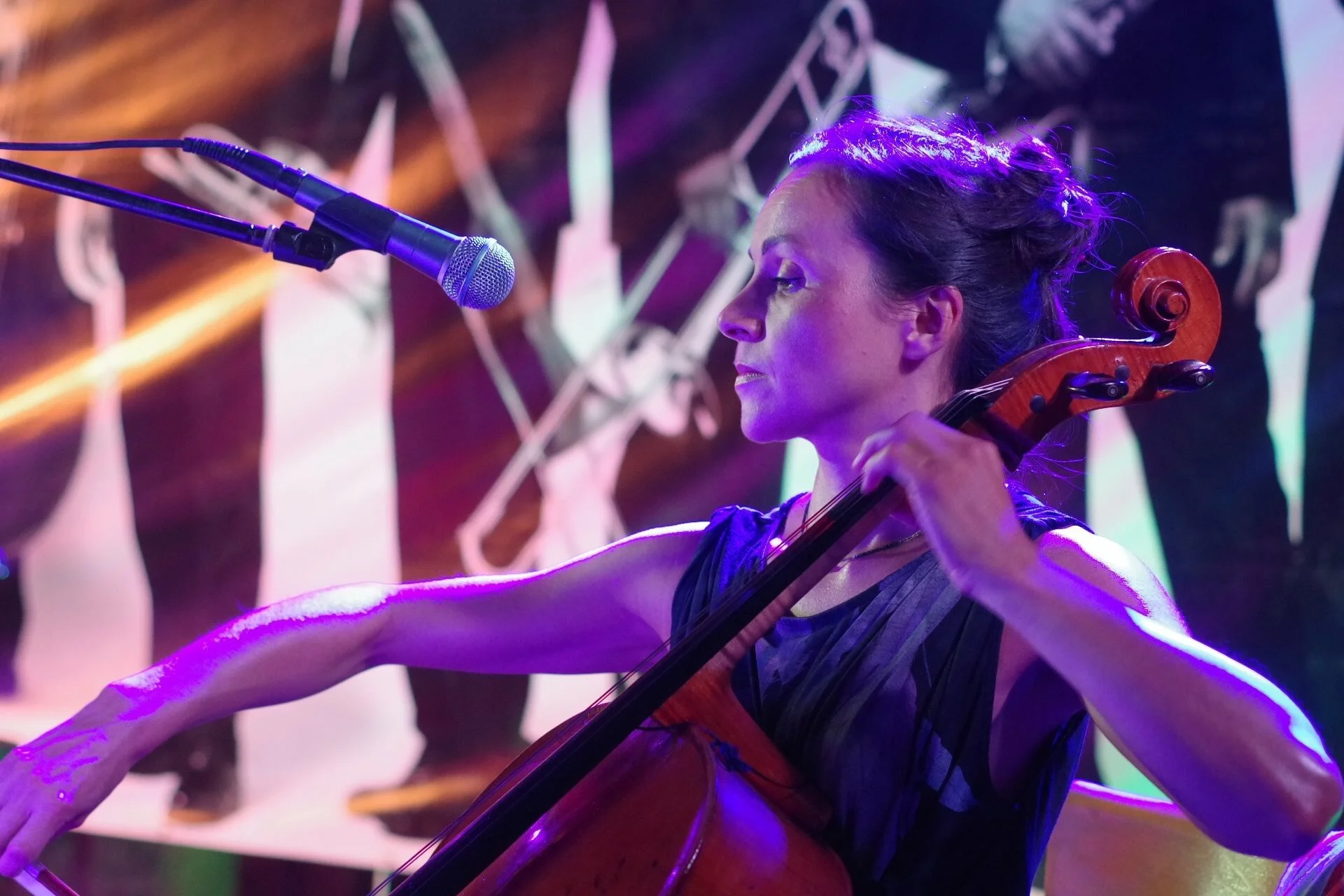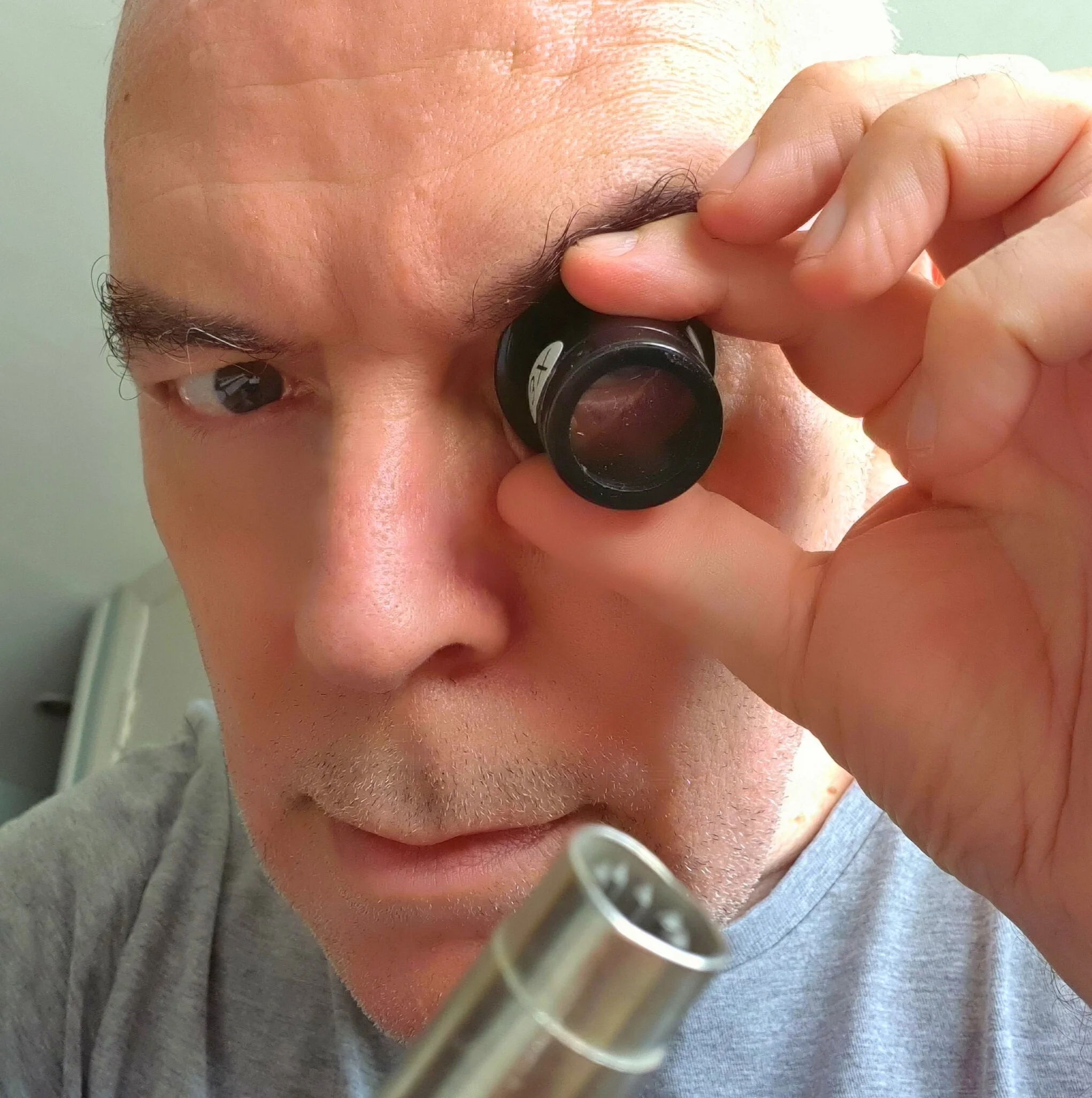ASSEMBLAGE: 27 AMAZING contributors
Savannah Roberts (voice)
Elisabeth Nygård (voice)
Melanie Pappenheim (voice)
Jeremy Avis (voice)
Ben See (voice)
Kimarné Henry (voice)
Benjamin Zephaniah (voice)
Daljit Nagra (voice)
Georgia Cooke (flute)
Andy Hall (trumpet)
Mandhira de Saram (violin)
Nic Pendlebury (viola)
Natalie Rozario (cello)
Steve Hackett (electric guitar)
Rich Perks (fretless electric guitar)
Ruth Goller (bass)
Roger King (synth)
Colin Riley (piano-organ-cello)
Liam Noble (piano)
Genevieve Wilkins (percussion)
Stephen Hiscock (percussion)
Dave Smith (drums)
Spenser Buckley (electronic loops and textures)
Jeevan Rai (electronic loops and textures)
Reuben Kyriakides (electronic textures)
James Waterworth (electronic textures)
Ben Jarlett (electronic texture)
Colin Riley
I have always organized musical things. When I was seven this was puppet shows and quizzes for my friends. I formed a string quartet at school when I was thirteen, then a band, an opera company, a festival, and a record label. Many other initiatives followed. I’ve never felt like waiting for the phone to ring. Nowadays this is called curating.
This feeling of not being part of any one tribe has what has driven me in my creative work since my upbringing as a classical cellist merged and cross-fertilised with rock, jazz, electronic and folk music. Composing is all I can remember wanting to do, and I am largely self-taught.
Isolated Pieces is something that sprung naturally from the relationships I’ve built up over the years with musicians across many genres. I put stuff out and was rewarded with generous trust from everyone involved. I have tried to be as sensitive and generous back, allowing the album to form itself naturally.
I also write regularly about composing, teaching and life on my blog Riley Notes.
Liam Noble
Liam Noble was brought up extremely rapidly by two parents in Bromley, Kent. His interest in music started from age two, when his analyst played him Schoenberg’s “Verklärte Nacht” as light relief from his regression therapy, resulting in the first in a line of prestigious awards – “Patient Of The Year, 1971.” From there it was a short step to Cannonball Adderley, the records of Miles Davis that featured his wives on the front covers, and the exuberant expletives of Jelly Roll Morton’s Library Of Congress recordings. Music and swearing went hand in hand in Noble’s early years, hopelessly splashing through mid period Beethoven sonatas and Chopin Études in a sea of curse and rage. He has since avoided sharps and flats altogether.
In a career spanning his entire working life, Noble has worked with a whole roster of international talent that reads like a list of people on a CV. Among them are some that should be singled out for special mention. He continues to practice Bach’s “Goldberg Variations”, in the hope that out of 32, one will eventually come out right.
Noble is a sought after educator, holding several negligible posts at major institutions. Teaching can often become repetitive; he has avoided this by teaching only one hour per year at each college. This hour is then taxed at source.
Liam Noble’s new solo cd marks a significant departure from his usual way of working, including as it does many of the black notes of the keyboard, which are used in new and surprising combinations. The album has received rave reviews throughout the press, and more are eagerly anticipated when the music is finally released.
Mandhira de Saram
Mandhira loves music, food, sunny days and her newly expanded family (which at the moment takes up every waking moment). Before the lockdowns, she took 6 months off to rest, grow creatively and settle into a new home. Her new home is lovely, but she found resting and finding a fresh creative outlook impossible until the half way through pregnancy and the very end of lockdown! With the help of her husband, she started recording from home and thinking of new approaches to music. Now, with a small baby in tow, she is looking forward to developing new techniques and ideas, and enjoying music as much as she ever did! Mandhira thrives off collaborating, having someone to bounce ideas off, make music with. Over the next year, she plans to get more into working with electronics and tech, get back to gigging with her string quartet, the Ligeti Quartet (when her baby allows) and go on holiday as much as possible.
Nic Pendelbury
Nic has spent the whole of his professional life getting people to write music for him. He’s probably done it over three hundred times now either by himself or together with three other note interpreters, quite often convincing other people to pay for it. Some of the notes are captured and then released back into the unknown world of listeners. Maybe you’ve spotified him and his mates doing it? People all over the world have asked him and his band, who trade under the name of Smith (!) incidentally, to bring some of notes to show them and have applauded them for doing so. On occasion he has been known to scribble some notes down himself, as in the case of this album, but usually you’ll find him on the banks of the Thames tending to a new up and coming generation of note interpreters.
Natalie Rozario
Natalie Rozario plays the cello and sings, and loves doing those things together with other people. Multi-genre is probably the polite way of describing her work life. She started out learning classical music, but her mum had Radio 2 on the whole time, so she grew up loving cheesy pop and easy listening just as much as Tchaikovsky and Stravinsky. She's the cellist you call up when you've got a project that's a bit unusual, like you need a cellist who's happy to lie on the floor and sing (Akram Khan - Ma), or get involved in a bit of physical theatre (Taragano Theatre - Chrysalis), or march around in red stilettos and pretend to knit (Clod Ensemble - Red Ladies), or just improvise and multitask with voice and cello (Gypsy Dreamers band). Natalie has been lucky enough to have played all over the world with some amazing dancers and musicians, but is mostly working in and around London as a freelancer.
Ruth Goller
Ruth Goller, originally from South-tyrol (IT), is based in London and plays electric and double-bass. After winning ‘Bass Player of the Year’ at the London Music School where she studied for one year, she then graduated at Middlesex University with a BA Mus Jazz in 2006 and has since played with many U.K. leading musicians and bands such as punk-jazz outfits Acoustic Ladyland and Melt Yourself Down (Decca), Vula Viel, UK jazz band Let Spin, Mercury-Award nominee Kit Downes, Sarah Gillespie, Chris Montague’s ‘Warmer than Blood’, Josienne Clarke (Rough Trade), Bug Prentice, The Golden Age Of Steam, The Moss Project, Laura Jurd Trio and many more. Ruth has enjoyed a very active performance schedule and has been fortunate to play at many leading Jazz festivals round the world. She recorded for many different artists, such as folk-musician Sam Amidon (and then toured with the live band, featuring Mark Ribot). In conjunction with being an in demand performer, Ruth has a wealth of experience in arrangement and composition for the many varied ensembles she is involved with. Many of her own compositions have also been included covered by other artists, on recording labels such as ECM Records. Over the last 2 years Ruth has been working on her own solo-project called ‘Skylla’ - featuring her own solo bass concept using different tunings for electric bass, alongside singing her own lyrics (the live band also includes extra singers Alice Grant and Lauren Kinsella). Ruth was asked to co- curate the South Tyrol Jazz Festival in 2017, where she devised a programme featuring cutting edge musicians from all over Europe. She has performed with musicians from all over the world and from all different genres - touring the world with Malian singer Rokia Traore and Serbian pianist Bojan Z as well as Iranian Sufi- master Davood Azad and Somali star Aar Maanta. Performance highlights to date have included: Main stage at Glastonbury Festival, Sydney Town Hall, La Cigale in Paris, Royal Festival Hall and the Lincoln Centre in New York. Ruth was part of ‘The African Express’ in 2013 - a tour organised by Damon Albarn, when she has shared a stage with Paul McCartney and John Paul Jones. Ruth also writes a monthly column for the Bass guitar magazine, and is endorsed by Orange Amplifiers.
Georgia Cooke
Georgia Cooke (1994) is a British flautist and composer, living and working in London, UK. She studied at Trinity Laban Conservatoire of Music and Dance and previously at Brunel University achieving a first-class honours degree in music and the Sheridan Award for Music Performance. She runs The Silver Pencils flute choir, who perform original music (including her own material), and is the flautist in Ensemble Entropy, a free improvisation and graphic score group. You can find out all about Georgia on her website georgiacookemusic.com .
Andy Hall
Andrew Hall is a performer, composer and researcher based in South London. In March 2020 Andy went from performing weekly 3-4 hour shows on the trumpet to suddenly having a very empty diary. The ensuing deconditioning of his brass-playing embouchure led to a variety of new sounds emerging from the trumpet, in which previously secure tones slipped readily into the liminal space between breath and pitch, and where of out-of-practice lip muscles seemed to audibly creak under the pressure of the instrument. This resonated with Andy’s interest in music and physiological processes (which he continues to explore as Music and Sound Research Consultant at Chelsea and Westminster Hospital NHS Trust), and as such became a key area of exploration in the creative work which followed. As well as featuring in his contribution to Isolated Pieces, these ideas and sounds also formed a key part of Atomic, an EP of new electronic music released in 2021 under the pseudonym countif.
Steve Hackett
I always say, “I make a noise for a living”...
From the moment I screamed from my cot, I realised I needed to find an outlet, and the guitar was it! As a child, I was mesmerised by a torch which shone either red or green. Each colour for me was equally enthralling. That’s how it is for me with acoustic and electric guitar. The red of electric thrills me, whilst the green of acoustic is balm to the spirit. Everything is like that for me. I have two favourite drinks, tea with honey and Jack Daniels with coke, and I have two modes, complete Joy and utter Despair, like the Andalusians I’m so inspired by... When I write something new I feel like a god, but when I can’t come up with anything I feel like a slug. I’m perfectly balanced with a chip on both shoulders!
It’s my fiftieth year as a professional noise maker and I’m as crazy as ever about music...
Rich PerksRich is one of Europe’s leading exponents of the fretless electric guitar and has performed all over the world. By combining innovative expressive techniques with a range of signal-processing technologies, Rich takes the fretless guitar into new sonic territories. As an improviser, his work explores the extended performance possibilities of the fretless electric guitar, tonal and timbral dissonance, different microtonal tuning systems and intercultural collaboration. In addition, he regularly commissions and composes new pieces for solo fretless electric guitar as a way of establishing a distinctive performance repertoire for this novel and exciting instrument. From ripping the frets out of his guitars to bench-pressing the band’s keyboardist on tour, Rich is committed to finding creative solutions to the ‘everyday problems’ facing the modern performing musician. Rich is Senior Lecturer in Music Performance at the University of Kent (UK) and Associate Professor of Music at the Institute of Contemporary Music Performance (UK).
Dave Smith
Dave Smith is best known for his work with Robert Plant and the Sensational Space Shifters, Fofoulah, and Afro-Blues group Juju. He has recorded drums for Rachid Taha, Bassekou Kouyate and Robert Plant and has performed with Patty Griffin, Donny McCaslin, Chrisse Hynde and Eddie Henderson. As co-founder of the Loop Collective, Dave is part of some of the most adventurous musical projects in the UK, which include Strobes, Cloudmakers Trio, Outhouse, MA and Splice. As co-leader of Outhouse Ruhabi and Fofoulah, he is the man behind the most fruitful collision of West African drum music and European jazz yet to surface.
Stephen Hiscock
My first regular gig was at the age of 14 in the local Royal British Legion social club. I played drum kit in a duo with my organ playing neighbour Mr Dibsdale. He wore full Salvation Army uniform and loved his full vibrato. My wage was numerous half pints of shandy which I put on my floor tom. I’d seen a drummer for a panto do that - so I did too. I wanted to be a proper drummer.
Then I worked my way through crap school bands, mediocre youth orchestras, angry student pop combos, slaptastic rockabilly outfits and suddenly (and most shockingly) contemporary music ensembles where I bluffed and grinned my way through many a late night squeakathon.
Following this, I went to Ghana numerous times and did intensive study of traditional drumming - which screwed my musical head on a different way from previously. Subsequently, I’ve taken my revolving head and chipped drumsticks to smelly rock venues in Europe, cavernous auditoria in Asia, baffling food markets in the U.S., large and small theatres on all five continents and, very occasionally, to windowless practice rooms that smell of stale beer and disinfectant - very much like the Royal British Legion club.
Genevieve Wilkins
Genevieve Wilkins is a multi-talented percussionist who has recently returned from London, UK to Perth, Australia- the most isolated city in the Southern Hemisphere. What better place to record an album called Isolated Pieces- surrounded on one side by desert and the other the Indian Ocean. She is a founding member of “The G Project”, an exciting and virtuosic collaboration with cellist Gabriella Swallow and when in London was a member of “ensemblebash”, UK’s premiere percussion ensemble. Genevieve has performed with and/or recorded with Nash Ensemble, Joanna MacGregor, Mark-Anthony Turnage, Galvanize Ensemble, Gavin Bryars, Lionel Richie, Akon, Josh Groban, Colin Riley, Joby Burgess, Max de Wardener, DJ Panko (Ojos de Brujo), Cerys Matthews, DJ Pathaan, Alex Wilson, Karen David, Alex Phountzi (Bugz in the Attic), Monika Lidke, Andrew Poppy, Alcazaba (Indian/Flamenco/Middle Eastern Fusion Project- founding member). 2016 saw her collaborating and performing solo onstage percussion for the award-winning premiere of the contemporary opera 4.48 Psychosis, for the Royal Opera House, Covent Garden. Genevieve has a strong background in Music Education and is currently an academic and percussion lecturer at the esteemed Western Australian Academy of Performing Arts. Genevieve is proud to endorse Vic Firth and popercussion cajons.
Roger King
Roger King is a musical exasperant. Because the creative process, as everyone knows, is 1% inspiration and 99% exasperation, the latter exhibited principally by the under-inspired. So he’s a sardonic under-inspirant too. And, it transpires, a neologist. Which is splendidly autological.
Both in between and during bouts of neologistic under-inspirantism, he’s pointed microphones at, and twiddled knobs for, a fair variety of different folk (popists, rockists, filmists, and classicalists), weathered the storm of the digital revolution and continues to make records (yes, records) after thirty-five years in the business.
There is also a dalliance with the true art of keyboard playing that might be worth a passing mention. Not just that book; Roger has read the user guides for myriad midi devices, and even ventured on to the stage in the guise of an actual performing musician. Sometimes to satisfactory effect.
All of which might give the impression of an unfulfilled, vagrant soul. It’s not the case, we’re happy to say; he’s both sanguinely accepting of his fate and genuinely delighted to be taking his place amongst this album's spectacularly talented ensemble.
Melanie Pappenheim
Melanie Pappenheimis a singer, performer, improvisor and occasional composer. She has devised work with such companies as DV8 Physical Theatre, Lumiere & Son, and Clod Ensemble. She has premiered numerous works featuring solo voice by composers such as Gavin Bryars, Orlando Gough, Graham Fitkin, Laurence Crane and her longtime collaborator Jocelyn Pook.
Melanie has worked with Colin Riley on several projects, most notably ‘In Place’ which was recorded and toured throughout the UK. She appeared at the ENO as Elizabeth I in Dr Dee by Damon Albarn and Rufus Norris and most recently at Garsington Opera in ‘Weather the Storm’ by Orlando Gough.
Her voice can be heard on many film and TV sound tracks including Stanley Kubrick’s EyesWide Shut, Doctor Who and The Crown.
Elisabeth Nygård
Educator, musician, mum, wife, friend, child at heart.
My philosophy as an educator and artist stems from my passion for the creative arts, and has been shaped through my musical identity as an artist. Collaboration is at the very core of my practice, both with my students and fellow musicians. I believe that the arts, especially music, are fundamental in supporting other areas of personal development and in developing empathy, compassion and care for others and the world we live in.
It is my belief that all human beings have an inner creativity that is very rarely expressed, especially as we grow older. Children however, possess a creative intelligence, or ‘thinking outside the box’ approach which I have always been amazed by and fascinated with. This is at the core of my musical inputs to this project. A sort of childlike approach where I had the freedom to play with sounds, words and textures.
Savannah Roberts
Savannah Roberts is a singer, writer, guitarist, producer, film-maker and workaholic.
She has always been drawn to storytelling, forever in pursuit of another creative outlet to portray a narrative in new ways; from acoustic songs to sonic compositions to visual albums.
Savannah is first and foremost a songwriter and blends other mediums in with that original craft. She’s an avid collaborator and enjoys seeing the new life a project can take on with the right creative partner.
She released her debut record in 2020, a collection of songs created in lockdown that encompass nostalgia, and is currently working towards another album that will be a departure from her known works.
Jeremy Avis
Avis aspires and mostly manages to wrangle musical styles as a cowherd wrangles cows. Recently Funk, yes, Nu-Soul, yes, Country and western, once: Dufay and Busnoys, yes, certain Arabic makamat if you please, Hebrew and Greek songs, even English folk when needed. Scrumptious contemporary classical, why of course, please send the dots! Genres of gig theatre/dance theatre as composer, producer and performer…..shows televised across Southern Africa….OK. Design and cost an new Higher Education Arts School in Botswana, yes, produce and musical direct a social cohesion project for 500 performers in a Malawian refugee camp, yes. Study, sing and record pygmy music in the West African rainforest, yes. Become a member of a funeral xylophone masquerade group in NW. Cameroonian Kingdom, become a member of the kwifon, a traditional governmental secret society yes, but DEFINITELY can’t tell you the initiation ritual. Compositions played on Radio 3 and NRK, check. MD-ing actors for theatre and film, yes, globe yes, rsc, yes national theatre yes. Cameo role singing G and S in the forthcoming film Fishermen’s Friends 2…… watch this space. Phew.
Ben See
Ben See is a singer, composer and choir leader from London. He specialises in new vocal music and community projects.
Ben’s music has been played and performed on BBC6Music, BBC Radio3, BBC London and Resonance FM. In fact, Ben was chosen as one of Tom Robinson’s ‘Fresh Favourites of 2015’ on BBC6Music. Recent composition projects include an #AdoptAComposer collaboration with Stoneleigh Youth Orchestra (funded by Making Music, PRS Foundation and BBC Radio3), a new composition for the ORA singers, and a commission for The German Choir Of London.
Alongside composing Ben performs as a vocal loop artist, and leads lots of singing projects and vocal workshops around the UK. Ben directs several choirs including Fire Choir with Sam Lee and the Nest Collective. Recent vocal workshops include the Southbank Centre, Union Chapel, Aldeburgh Young Musicians and the Sound&Music Summer School. Ben has also launched his own record label. LaLaLa Records is a platform for new vocal music, and supports emerging composers, performers and ensembles.
Kimarné Henry
“Kimarné – to fulfil one's potential”
I’ve always had an impact on people, but it wasn’t until 7 years old that I realised singing and performing was the catalyst to finding my true purpose. Whether I made you want to dance with joy, cry, think or feel things you never knew existed, I’ve always been able to evoke a range of intense emotions in people.
My development as a musician has been unorthodox to say the least. Having played Steel Pans since 14, if I was to just call myself a vocalist, I would be doing myself a disservice. I sing, but I also love life. Being a music student at Brunel further opened my eyes to the many different realms within music; and taught me the best ways to channel my creative energy. From theoretically strict exercises like Counterpoint, to the analysis of ‘8 Songs For A Mad King’.
I think a massive part of being an artist is how you interact with your world and how you interpret those interactions. Artistry is about freedom, individualism and breaking rules – and I guess I just love being an artist !
Benjamin Zephaniah
Dr Benjamin Obadiah Iqbal Zephaniah was born and raised in Birmingham, England. He cannot remember a time when he was not creating poetry but this had nothing to do with school where poetry meant very little to him, in fact he had finished full time education at the age of 13.
He loved Handsworth, he called it the Jamaican capital of Europe but at the age of 22 he headed south to London where his first book Pen Rhythm was published by Page One Books. The book sold well going into 3 editions but it was in performance that the Dub (Reggae) Poet would cause a revolution, a revolution that injected new life into the British poetry scene.
In the early Eighties when Punks and Rastas were on the streets protesting about SUS Laws, high unemployment, homelessness and the National Front, Zephaniah’s poetry could be heard on the demonstrations, at youth gatherings, outside police stations, and on the dance floor. This poetry was political, musical, radical, relevant and on TV.
In the nineties his book publications, record releases and television appearances increased in Britain, although he has concentrated on performing outside Europe. He feels at home anywhere the oral tradition is still strong and lists South Africa, Zimbabwe, India, Pakistan and Colombia as some of his most memorable tours. In fact life has been one long tour but this is the only way the oral tradition can live. Over a 22-day period in 1991 he performed on every continent on this planet.
Periodically The Benjamin Zephaniah Band takes to the road. He was also the first person to record with the Wailers after the death of Bob Marley in a musical tribute to Nelson Mandela.
Most of his own musical recordings fall into the Reggae or Dub Poetry category, but his latest album ‘Naked’ defies categorisation. It is a mixture of Jazz, Reggae, Hip Hop, Rock and house music. In order to compliment the music the graffiti artist Banksy gave exclusive permission for his artwork to feature in the 36 page booklet that comes with the CD. The album was critically acclaimed and received substantial radio airplay worldwide.
Then there is Benjamin Zephaniah the children’s poet. His first book of poetry for children called Talking Turkeys had to go into an emergency reprint after just 6 weeks, no one could foresee how popular the book would be, it went to the top of the children’s book list and stayed there for months. Then seemingly from nowhere, in 1999 he wrote a groundbreaking novel for teenagers. ‘Face’ the first of four novels to date, proved that teenage boys would read if they have access to books that they can relate to.
He has sixteen honorary doctorates and the Eailing Hospital in west London has named a wing after him in recognition of his work. Zephaniah believes that working with human rights groups, animal rights groups and other political organisations means that he will never lack subject matter.
Daljit Nagra
The best thing about me is probably my surname, it is a Punjabi word derived from Nogaja, the name of my ancestral village. All who live in the village have Nogaja as their surname; Nagra is a corruption of that name. Nogaja means: noh for nine, gaj for metres (or equivalent measure in India). Everyone in our village is named after a nine metre man who is buried in a tomb in the village. Nogaja had spiritual powers and was a mystic. We also have snake shrine in our village which is perhaps more interesting but it’s a tale for another time!
Jeevan Rai
Jeevan Rai is a composer, improviser and laptopist who probably spends more time building music tools than he does using them. On the rare occasions that he finishes a track, his work draws on glitch, electronica, generative postminimalism, ambience, found sound, free improv, and his North-Indian and East-African heritage. His main interests are experiential grain and its phenomenological relationship with textures of environment, acousmatic surfaces, the creative ecology of computer music and (post)digital ‘liveness’. Much of this is explored in jr~sd, his longstanding duo project with Sandy Dobson. has also collaborated with Notes Inégales (Peter Wiegold, Martin Butler, Max Baillie), Huw Watkins, Melanie Pappenheim, Snowpoet and Colin Riley, with performances at the National Portrait Gallery, TivoliVredenburg, York Spring Festival, Borough New Music, Great St Barts, Barbican PIT, Guildford International Music festival, and Vibe Bar. He completed a fully-funded doctorate at Surrey, where he currently teaches creative coding.
Spenser Buckley
I love building synths and writing music. I’m in the process of finishing a funk album and a couple of tracks for adverts as well as tinkering with electronics.
In the meantime, I’ve been trying to learn to cook as well as binge watching ‘flix.
I can’t wait to go to a gig again. Got a couple absolute rippers coming up in 2022! Here’s hoping they happen eh?
Reuben Kyriakides
tbc
Ben Jarlett
My contribution towards the album came out of the blue just when I was in need of something musical to do. I'd been trying to get my band to get together online using software unsuccessfully, and had just been having fun with my (supercasio)brother Joe revisiting software we'd written in the early noughties for a big birthday party, so was hungry for something... I found myself with headphones on, on my partners sofa, surrounded by children doing online school. I had a laptop, maxmsp, and Nathan Wolek's granulator tools at the ready. My contribution was wanting to create echoes of the sounds I was given, but as I had the luxury of playing with time (lockdown was like that for me). I wanted to create both future echos as well as past. I had sliders as inputs for gestures creating a granular dance of sound around the audio - sometimes ahead and sometimes behind. I used Miller Puckette's bonk~ object to detect and create divisions and multiplications of the rhythms in the audio, so repeats were tied to the played audio. I also focussed on how to smooth the gestural changes so that my gestures could be gentler and more vocal.
James Waterworth
tbc
LISTEN TO THE ALBUM
Composer-curator Colin Riley has assembled an 'online orchestra' of 27 musicians who have all worked in isolation without knowing about each other. The ensemble is called Assemblage. Pieces of musical lego have then been put together over the last 18 months following where the music has led. A fusion of musical styles and creative approaches.
Working be means of response, this project has been propagated from 17 small musical seeds; short haiku-like improvisations made on the piano by Colin Riley and Liam Noble.
Colin has invited musicians who he knew trusted him, to record sympathetic responses to any of these fragments. As he collected these back, his own musical responses were set in motion. Fragments were laid together, displaced, cut up and sometimes looped or electronically treated. Sometimes the original piano haikus were erased altogether. He followed where the material led him, allowing for an integrated language fully-exposed to musical genre of any kind. As individual pieces took shape further invitations to respond were made drawing in a range of vocalists. This next layer involved text and so helped to focus many of the emerging moods of the music.
The backwards-and-forwards game of garnering further responses was played for over a year. The result is 18 tracks charting the emotions of disconnectedness and isolation during the pandemic lockdowns. By turns the music is intimate, bleak, sensuous, angry, witty, and ecstatic: but always sensitive and full of detail.
The contributors come from many diverse musical backgrounds and ages. This community of musicians acting as a virtual orchestra is at the heart of the project. The process has been to engage in new creative territory, and along the way to explore fresh ideas around what music is about at its core - connectedness.
All proceeds from this project will support the vital work of Youth Music. The organisation - like all the contributors to this album - believes that every young person should have the chance to change their life through music.
